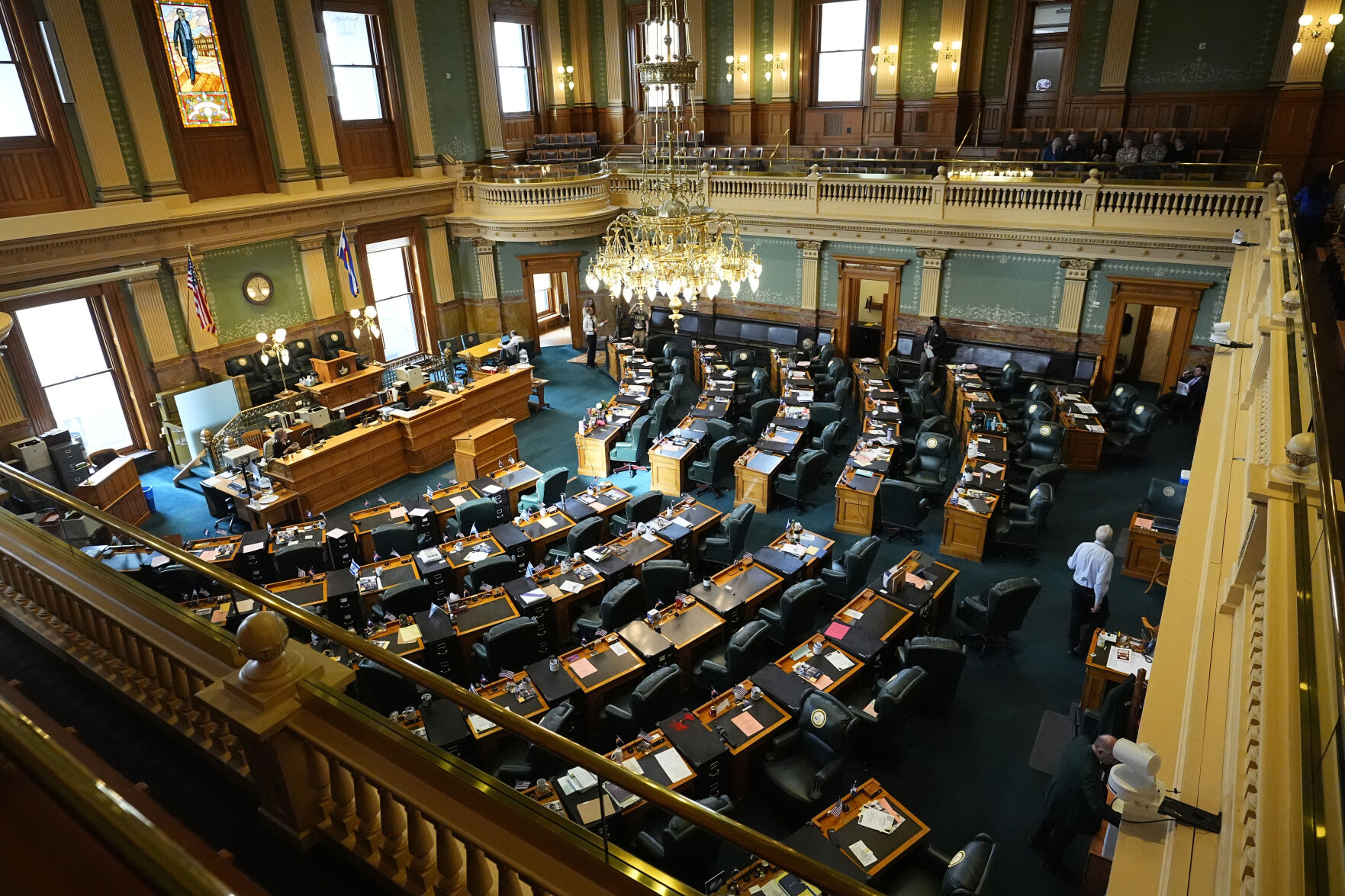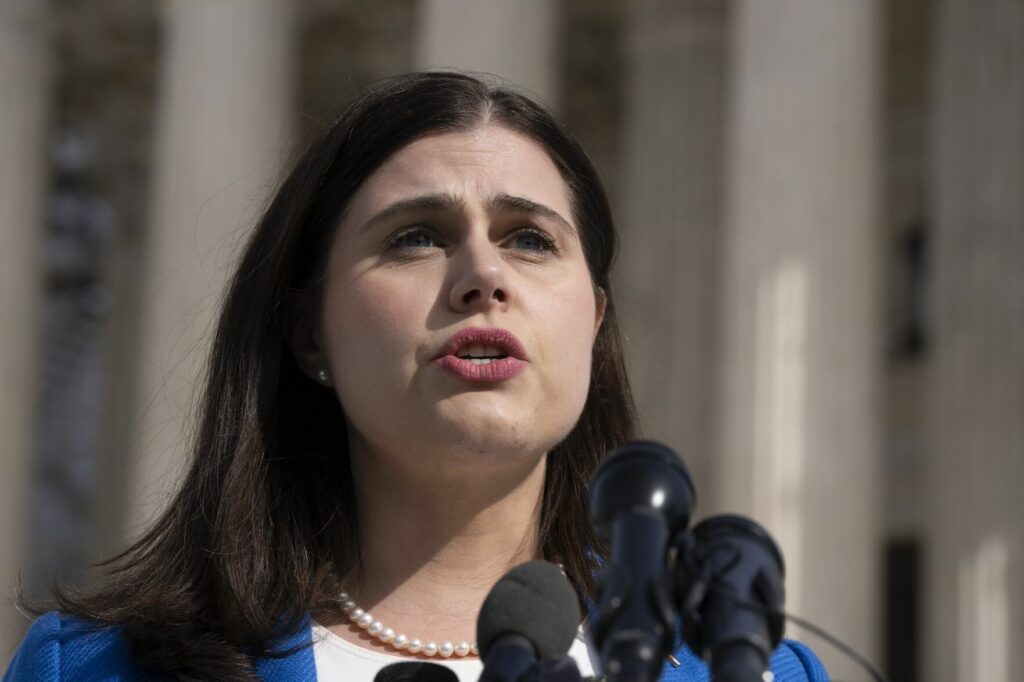Colorado House approves $40.6 billion budget with only one Republican vote

The Colorado House on Monday approved the state’s $40.6 billion budget for the next fiscal year on a more or less party-line vote.
The 48-16 vote reflected just one “yes” from Republicans – from the GOP caucus’ Joint Budget Committee member, Rep. Rick Taggart of Grand Junction. Taggart helped to draft the next spending plan contained in House Bill 1430.
Another Republican representative was absent.
Taggart joined the Joint Budget Committee this year, replacing Rep. Rod Bockenfeld of Watkins, who is undergoing cancer treatment.
Lawmakers in both parties noted the budget reflects values and priorities, although not always the same ones.
Republicans decried the proposed budget, effectively accusing lawmakers of pushing – and increasing – spending without regards for taxpayers, while Democrats insisted they have been prudent.
House Republicans tried to soften the blow of their “no” votes, acknowledging the hard work of the JBC, which began looking at the numbers for the upcoming budget year last Nov. 1, when Gov. Jared Polis presented his budget request.
Members on both sides of the aisle put their own imprint on the state budget, adopting a dozen amendments that added just over $12 million in general funds to a variety of state agencies. The largest was a $6.1 million appropriation to the Department of Human Services for senior services. That amendment came from Reps. Mary Bradfield, R-Colorado Springs, and Democratic Reps. Jenny Willford of Northglenn and Mary Young of Greeley.
Republicans called the bill runaway spending.
Rep. Lisa Frizell of Castle Rock noted the budget has increased by $17 billion in the last five years, including $2 billion, or 5.75%, in this budget proposal.
“Did my constituents see a 5.75% increase in their take-home pay?” she asked. “We’ve told the citizens of Colorado to tighten their belts, while we in this building go on a spending spree year after year.”
She also called the budget a failure, adding lawmakers can’t say no.
Rep. Matt Soper, R-Delta, told the House the state’s priorities are reflected in how the money is spent.
Soper pointed in particular to the allocation for the Department of Health Care Policy and Financing and its $16 billion budget. That’s about $2,666 for every Coloradan, but only one in four is on Medicaid. The actual per capita spending on Medicaid is $10,000 per person.
Medicaid spending has long been a subject of criticism by Republicans.
“But I do appreciate the work of the JBC and its long hours,” Soper said.
Rep. Marc Catlin, R-Montrose, who is in his eighth session, said he thought he first came to the Capitol to talk about agriculture and water and schools. While that has happened, what else has occurred is “a tidal wave and eagerness” to spend money without thinking about the unintended consequences, he said.
Sooner or later – and he said he hopes sooner – the state will realize it needs to step on the brakes to avoid a downhill slide.
The state has gotten used to spending without thinking where the money comes from, he added.
House Minority Leader Rose Pugliese of Colorado Springs highlighted the half-dozen GOP amendments the chamber adopted. She lamented the limited amount of time lawmakers have to digest the proposed budget, and asked for opportunities to improve the process. She voted against the proposal but said it isn’t because of the hard work, either of the JBC or by her fellow lawmakers.
“We did genuinely work in good faith to bring forward amendments” that were important to the House, she said.
Assistant House Majority Leader Rep. Jennifer Bacon of Denver agreed the budget reflects their values.
“The budget puts real things on the table to help people catch up to the American dream,” such as funding for higher education, payment for nurses or money for food for children. “When I vote, I am more than happy to stand up” for equity, healthy air and food to bellies, she said.
Taggart, the lone House Republican on the JBC, told his colleagues that one number that should have jumped to everybody out was that 67% of the proposed budget increase is happening two departments, which, he said, addressed underserved populations.
That’s a symptom that will get worse – but the budget, at least, tried to approach that problem, he said.
One of the departments is higher education, where 70% of the jobs will require a certificate or degree or license.
“If we’re going to solve the symptom, we need to provide the people with an opportunity to pull themselves out of poverty,” he said.
The other department is K-12 education.
“I will fight like hell (for both),” he said.
“This budget is not just a collection of numbers and tables. Every dollar spent can make a difference in someone’s life, and it’s our responsibility to make sure those funds are spent wisely, said JBC member Rep. Emily Sirota, D-Denver.
She echoed Taggart’s support for education and higher education, calling funding critical to unlocking opportunities for Colorado’s residents.
JBC Chair Rep. Shannon Bird, D-Westminster, said the proposed budget does not overspend.
“We aren’t able to,” she said, “That should be in taxpayers’ pockets.”
She said she is most proud of the bipartisan collaboration on the budget work, adding, “It gives me such faith in the government.”
Bird pointed to some of the significant achievements of the spending proposal.
It’s the first budget since 2010 when the state spending plan is fully compliant with Amendment 23, with a commitment of more than $500 million for K-12, she said.
The budget also boosts higher education funding by 10%, along with a tuition increase of 3%, below the rate of inflation. She also noted money went to corrections to invest in inmate job training and funding to hire and retain employees.
Money is limited, with more than $100 million in amendments that the state could not afford to add, she said.
“This isn’t a big spend-a-thon,” she said.
The budget bill now goes to the Senate.














